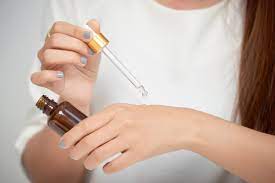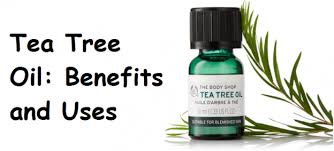“Discover the many benefits of tea tree oil, a versatile and natural oil extracted from the tea tree plant. With antiseptic, antibacterial, and anti-inflammatory properties, tea tree oil can be used for skincare, hair care, aromatherapy, nail fungus treatment, household cleaning, and much more. Learn how to incorporate this magical oil into your daily routine for a healthier and more natural lifestyle.”
What Is Tea Tree Oil
Tea tree oil is an essential oil derived from the leaves of the tea tree (Melaleuca alternifolia), which is native to Australia. It is a colorless to pale yellow oil with a fresh, medicinal aroma.
It’s important to note that this oil should be diluted with a carrier oil before using it topically and that a patch test should be done before using it on a larger area of skin, to avoid potential irritation or allergic reactions.
It has been used for centuries by the indigenous people of Australia for its numerous benefits.
Additionally, it should not be ingested and should be kept out of reach of children and pets. As with any natural remedy, it’s always best to consult with a healthcare provider before using this for personal care or health purposes.
What Is Tea Tree Oil Good For
Tea tree oil is a versatile and natural oil that is extracted from the leaves of the tea tree (Melaleuca alternifolia) plant.
It has been used for thousands of years by the indigenous people of Australia for its antiseptic, antifungal, and antimicrobial properties.
Today, it is widely used in a variety of cosmetic and personal care products, such as shampoos, soaps, and skin lotions.
In addition to its topical use, tea tree oil is also used for aromatherapy and as a natural remedy for various health conditions, including acne, dandruff, and fungal infections.
Uses Of Tea Tree Oil For Skin
Tea tree oil is commonly used for skin care due to its antiseptic, antifungal, and antibacterial properties. Some of the most common uses of tea tree oil for skin include:

Acne:
It can be applied topically to help unclog pores and reduce the severity of acne breakouts.
Bacterial infections:
It has antibacterial properties that make it effective in treating skin infections, such as impetigo and cellulitis.
Fungal infections:
It has antifungal properties that make it effective in treating skin fungal infections, such as athlete’s foot and ringworm.
Inflammation:
It has anti-inflammatory properties that make it effective in reducing the redness and swelling associated with conditions like psoriasis and eczema.
Warts:
It can be used topically to help reduce the size of warts.
Sunburn:
It can be used to soothe sunburned skin and reduce redness and peeling.
It’s important to dilute tea tree oil with carrier oil, such as coconut oil or almond oil, before applying it to the skin.
It’s also important to do a patch test before using this on a larger area of the skin to avoid any potential irritation or allergic reactions. Always consult with a dermatologist or healthcare provider before using tea tree oil for skin care, especially if you have sensitive skin or a pre-existing skin condition.
Is Tea Tree Oil Good For Hair?
This oil is known for its antiseptic, antifungal, and antimicrobial properties, making it a popular ingredient in hair care products.

Uses Of Tea Tree Oil For Hair
Some of the most common uses for hair include:
Dandruff:
It can be used to help treat dandruff and other scalp conditions, such as seborrheic dermatitis, by reducing the growth of yeast on the scalp.
Lice:
It has been shown to be effective in treating head lice, as its antimicrobial properties can help kill the lice and their eggs.
Itchy scalp:
It can help to soothe an itchy scalp and reduce inflammation.
Hair growth:
It has been shown to have a stimulating effect on the hair follicles, potentially promoting hair growth and reducing hair loss.
Oily hair:
It can help to balance the production of oil on the scalp, making it a popular ingredient in shampoos for oily hair.
Tea Tree Oil Side Effects On Skin
While it is generally considered safe for topical use, it can cause skin irritation and allergic reactions in some people.
Some of the most common side effects on the skin include:
Irritation:
It can cause mild skin irritation, redness, and itching in some people, especially when used in undiluted form or in high concentrations.
Allergic reactions:
Some people may develop an allergic reaction to this oil, which can cause redness, itching, and swelling.
Dryness:
Overuse of this oil can cause skin dryness, flaking, and peeling.
Sun sensitivity:
It can increase the skin’s sensitivity to sunlight, which can increase the risk of sunburn and skin damage.
Side Effects Tea Tree Oil Side Effects For Hair
While this oil is generally considered safe for hair use, it can cause scalp irritation and other side effects in some people.
Some of the most common side effects on the hair and scalp include:
Scalp irritation:
It can cause mild to moderate scalp irritation, redness, and itching in some people. This is more likely to occur if the oil is used in an undiluted form or in high concentrations.
Allergic reactions:
Some people may develop an allergic reaction to this oil, which can cause redness, itching, and swelling of the scalp.
Dryness:
Overuse of this oil can cause hair dryness, breakage, and split ends.
Scalp build-up:
It can leave a buildup on the scalp if not rinsed out properly, which can lead to dandruff and other scalp conditions.
It’s important to consult with a dermatologist or healthcare provider before using this oil, especially if you have a pre-existing scalp condition or are taking any medications that can increase your scalp’s sensitivity.
Other Uses Of Tea Tree Oil
It has many other uses besides being used for hair and skin care. Here are a few:
Disinfectant:
It has antifungal, antibacterial, and antiviral properties that make it a great natural disinfectant. You can use it to clean and sanitize surfaces in your home, such as countertops, cutting boards, and bathroom fixtures.
Aromatherapy:
It has a fresh and invigorating scent that can be used in aromatherapy to promote mental clarity and boost energy levels.
Nail fungus:
It can be used to treat nail fungus due to its antifungal properties. Simply mix a few drops of tea tree oil with coconut oil and apply it to the affected nail.
Laundry:
You can add a few drops of tea tree oil to your laundry to kill germs and freshen up your clothes.
Household cleaner:
Tea tree oil can be used as a natural household cleaner to get rid of germs and grime. Simply mix a few drops with water and use it to clean your home.
DIY Skin Care Products Using Tea Tree Oil
Here are a few recipes for skin care products that you can make using tea tree oil:
Acne spot treatment:
Mix 2-3 drops of tea tree oil with 1 teaspoon of aloe vera gel. Apply to individual pimples or areas of breakouts using a cotton swab.
Tea tree oil facial toner:
Mix 10-12 drops of tea tree oil with 1 cup of witch hazel. Pour into a clean spray bottle and use as a toner after cleansing your face.
Tea tree oil face wash:
Mix 5-6 drops of tea tree oil with 1/4 cup of castile soap and 1/4 cup of water. Pour into a clean bottle and use as a face wash.
Tea tree oil body wash:
Mix 10-12 drops of tea tree oil with 1 cup of unscented body wash. Pour into a clean bottle and use as a body wash.
Tea tree oil moisturizer:
Mix 5-6 drops of tea tree oil with 1/4 cup of coconut oil or your favorite moisturizer. Apply to skin as needed.
Additionally, it’s always a good idea to patch-test any new products on a small area of skin before using it all over your face or body.




